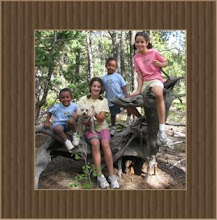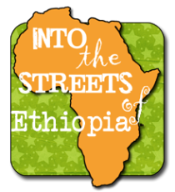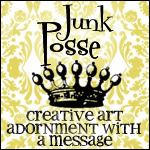When our boys came home they were 3. At three a child knows a lot of language and ours were HIGHLY verbal, and one quite verbose. K used complex language of a child much older (age was correct) and N used a sort of "country bumpkin" sort of speech, very cute to those who could understand it (at the guest house and drivers, etc.). They would both look to us and chatter on about whatever or ask for what they needed, in Amharic. We learned fast some key phrases to say and hear.
*Here are some of the things we did to communicate while in transition (in ET and for about 2 weeks home):
- picture cards/with Amharic phrases and words written on them so we could show them the picture say the Amharic and English word.
- We also used a phrase and word list see this post: http://jkdcolorado.blogspot.com/2009/04/amharic-word-list-for-communication.html
- We played a lot of memory games to use words items they were likely familiar with and learn the new word.
- We read those baby books that have one picture on a page with a word. Trucks, Animals, Toys, Food, Etc.... I would say books with only one picture on a page are the very best, not confusing. There was lots of snuggle time with that too, and so it was fun for all of us.
- Using deliberate speech. Please give mommy the blue cup on the table. Please put your white socks in the dirty laundry basket. Go get your red dog from your room. The more descriptive and intentional the language the better the learning.
- loads of play time and reading time.
- Talking about everything with descriptive language. I got tired of talking.
- Leap Frog videos, games and toys (keep to the Preschool variety at first)
- Picture flash cards for numbers and letters (play games with these)
- picture dominoes (basic items like fruits or colors)
- number dot dominoes
- singing kids songs, especially ones with actions
- finger games and hand play rhymes and songs
- seek and find
- 20 questions, I'm thinking of a ____________ (give category)
- First Word cards (these have pictures and are great not just for reading but for what is this thing called).
- matching games and sorting games
- Language Wizard series
- Cool Cards (picture cards for learning items)
- brain games
- facial expressions cards to learn feeling words (this is a useful thing to work on, whatever method you use to teach it).
Here are some online resources, check out Preschool, Early Child Development, creative play, readiness skills, language arts, language:
http://www.lakeshorelearning.com/seo/f|/Assortments/Lakeshore/ShopByCategory/language/viewall.jsp
http://www.eschoolcrossing.com/
http://www.teachingsupplystore.com/early_childhood-c-1011125.html
http://www.cmschoolsupply.com/
Remember it is NOT how much your child knows but how much your child knows you love him or her. In our culture it is easy to get caught up in how much your kid knows but it all comes......... no need to push. Love on him or her and they will have the confidence to learn. These suggestions are for FUN. It is important to keep perspective.











































No comments:
Post a Comment
Please leave a comment: